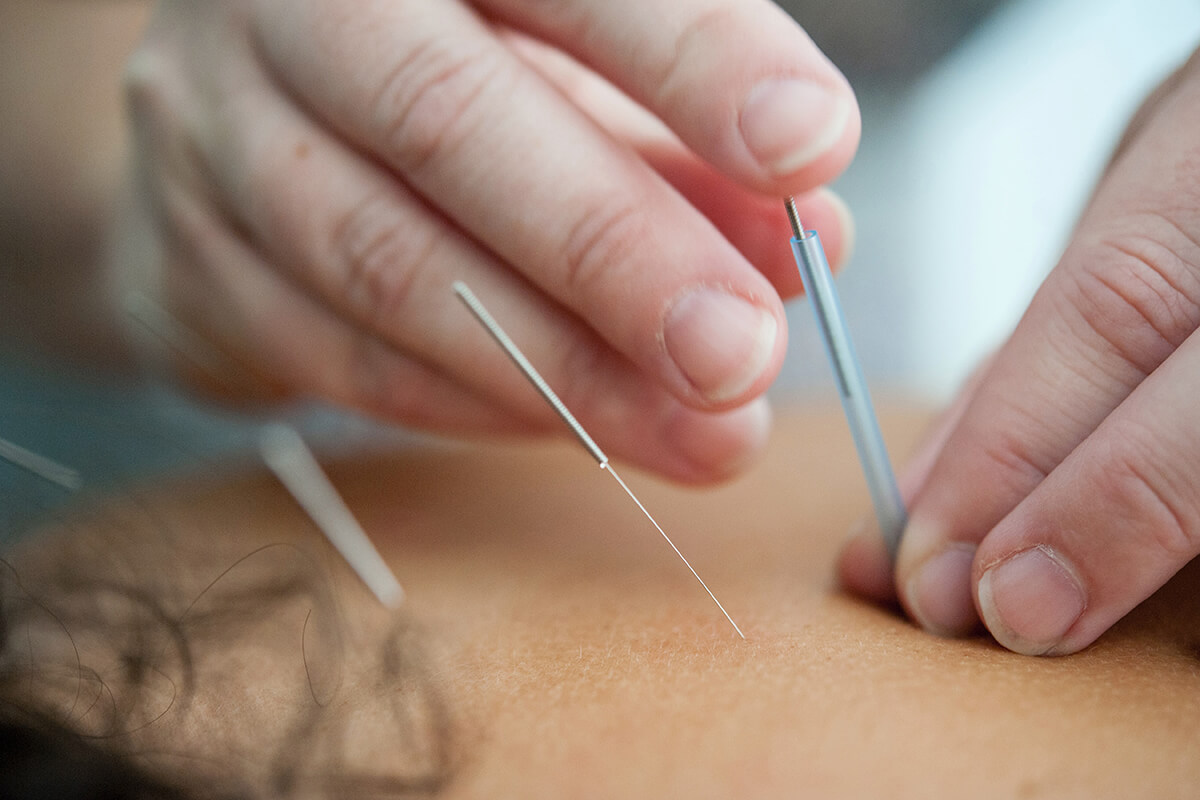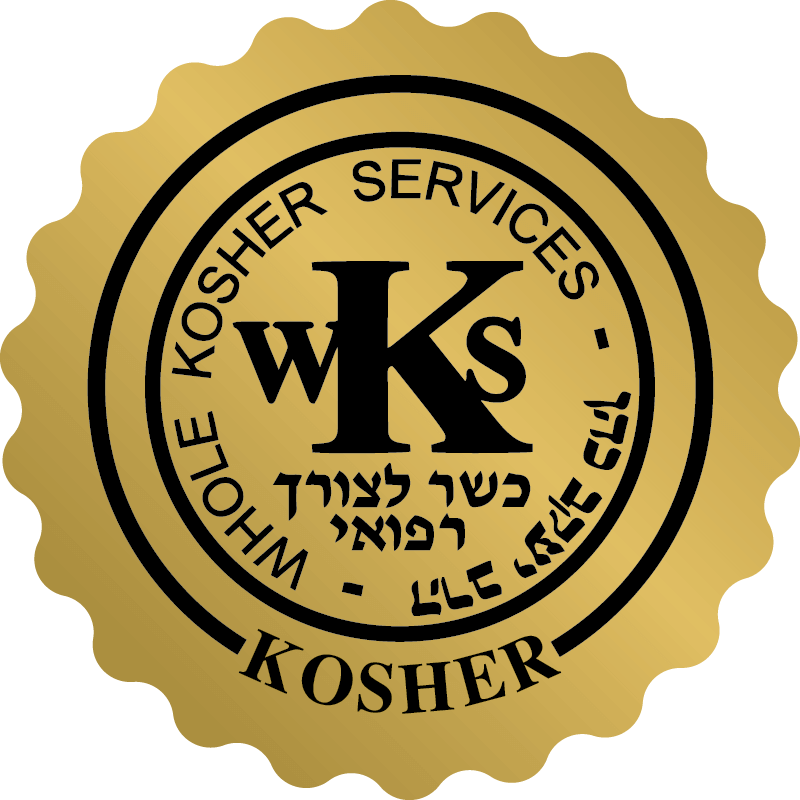Let’s talk about your endocannabinoid system or ECS. Although this system can be found in every vertebrate on the planet, it’s not something we hear about often, in part because of its relation to cannabis.
The ECS is a communication system within the body. It’s responsible for finding imbalances, like pain or an upset stomach, and restoring balance to those areas. Pretty important, right? Well, it’s often been ignored in modern medicine because one of the best ways to stimulate it is through our favorite plant: cannabis. (It was actually named the endocannabinoid system because cannabis led to its discovery!)
But one ancient medicinal practice has been focusing on the role of internal balance for thousands of years. Traditional Chinese Medicine, or TCM, is all about keeping the body balanced so it can better fight off illness and disease. Essentially, it’s a proactive approach to health instead of a reactive one. And one important aspect of TCM is acupuncture, a technique for balancing your body’s energies.
So, how can we boost our internal balance using the benefits of both the endocannabinoid system and acupuncture? Read on to find out.
What Is the Endocannabinoid System?
We talked about the ECS being a communication system within the body, but what exactly does that mean? Well, when the body experiences an imbalance, like shoulder pain, the ECS starts communicating. It signals to the brain to produce endocannabinoids which are then routed to the painful area. Once there, those endocannabinoids stimulate ECS receptors (known as CB1 and CB2), which help to reduce the pain and bring everything back in check. When the job is done, enzymes destroy the endocannabinoids so they don’t overdo it.[1]
It’s thought that some people experience endocannabinoid deficiencies which may lead to health issues. Not a lot is known about ECS deficiencies, but some preliminary research on rodents is starting to suggest a link between chronic illnesses, like irritable bowel syndrome, and an ECS deficiency.[2] Some early research suggests that introducing other cannabinoids through the consumption of cannabis may help with a deficiency. Not saying this will cure the issues potentially caused by a deficiency, but research suggests it may have the potential to offer some relief.
Cannabis and the Endocannabinoid System
Cannabis is full of phytocannabinoids that are very similar to our body’s endocannabinoids. So similar, they interact with our ECS in much the same way. Not a lot of research about cannabis’s phytocannabinoids and their potential to help the ECS has been confirmed at this point, but we do know a couple things about its two main cannabinoids: THC and CBD.
First, we know that THC has an affinity for both the CB1 and CB2 receptors. It loves to bind to these receptors in a similar way as anandamide, our body’s natural “bliss molecule.” We also know that CBD generally avoids CB1. It can stimulate CB2, located mostly in the immune system, but it’s most known for blocking these receptors and for stimulating or blocking other pathways in the body.[3]
By interacting with our ECS, cannabis may be able to boost the system and help out where we’re experiencing endocannabinoid deficiencies.
What Is Acupuncture?
Acupuncture is a main component of TCM. It involves sticking very thin needles into specific, strategic points on your body. And no, it’s not as painful as it sounds. These needles are small.
TCM uses acupuncture to balance the energy believed to flow through pathways, or meridians, within the body. It’s mainly used to relieve pain, although it’s also often used to manage stress and sometimes fix other imbalances like allergies.
While TCM takes a more holistic approach by believing it realigns energies, Western medicine uses a more…well…Western viewpoint and thinks the needles stimulate nerves, muscles, and connective tissue and may even boost the body’s natural painkillers.
Some studies attest to its effectiveness, some call it placebo. Either way, it’s been in practice for millennia and many have found it to be quite effective at relieving pain and other imbalances.[4]
Acupuncture and the Endocannabinoid System
Since acupuncture’s main goal is restoring balance, it makes sense that the ECS may be involved. A 2009 study on rats found that electro-acupuncture (using needles and electric current) used for pain relief on inflamed skin tissue may have helped to increase the production of anandamide, one of our body’s endocannabinoids, in turn helping ECS deficiencies.[5]
Using Cannabis with Acupuncture
Since acupuncture may initially seem stressful to some—sticking needles into the body might not sound super appealing—cannabis might be the perfect companion to offer you some peace of mind before going in. Of course, always consult with your doctor before consuming cannabis or trying new treatments like acupuncture. Once you’re in the clear, here are some ideas for using cannabis with acupuncture:
- Smoking or vaping is a great option for immediate euphoric effects, but be careful of how much THC you consume. While a little THC can help to calm feelings of uneasiness, too much THC has actually shown to increase anxiety and paranoia.[6] (We’ve all been there!) Try something with higher CBD than THC, like our Joker’s Gift .5g cart. It’s got a 2:1 ratio of CBD to THC, so you can still experience a high without those scary mental lows.
- Edibles may be appropriate for your acupuncture experience since they offer more of a body high versus a head high. After all, acupuncture is all about balancing the body’s energies! Again, be careful with your THC consumption here. Edibles hit harder than smoking or vaping because your liver converts the delta-9-THC into 11-hydroxy-THC which is more potent and gets to the brain quicker.[7] Consider trying just one piece of our Dark MINT Chocolate Bar to relax your body before your acupuncture session begins.
- Sometimes people report minor soreness after an acupuncture treatment. If you experience this, a topical option like this Rev Clinics Shea Butter and Lavander 1:1 CBD to THC topical may help to reduce that soreness. By releasing cannabinoids directly to the area in pain, you can expect fast-acting results without any type of high.
Summary
Research is still needed to determine all the roles the endocannabinoid system, cannabis, and acupuncture play in our body’s internal and external balance. Here’s what we do know:
- The ECS is in charge of maintaining homeostasis, or internal balance, within the body. It does so through endocannabinoids, cannabinoid receptors, and enzymes.
- Research suggests that some people may have endocannabinoid deficiencies. Since cannabis is full of phytocannabinoids that interact with our ECS in a similar way to endocannabinoids, it may be possible that cannabis can help with these deficiencies.
- Like our ECS, acupuncture’s main goal is to restore balance within the body, and in particular, the body’s energies. Research suggests electro-acupuncture may stimulate the ECS and increase the production of anandamide, one of the body’s endocannabinoids.
Do your research and talk to your doctor before considering a balance boost through acupuncture or cannabis. Once you get the go-ahead, cannabis and acupuncture may be just the double whammy you need to feel balanced and refreshed.
SOURCES
- https://norml.org/marijuana/library/recent-medical-marijuana-research/introduction-to-the-endocannabinoid-system/
- https://www.ncbi.nlm.nih.gov/pmc/articles/PMC7186328/
- https://www.ncbi.nlm.nih.gov/pmc/articles/PMC4120766/
- https://www.mayoclinic.org/tests-procedures/acupuncture/about/pac-20392763
- https://www.frontiersin.org/articles/10.3389/fnins.2020.594219/full
- https://www.healthline.com/health/marijuana-paranoia#cause
- https://weedmaps.com/news/2018/08/edibles-waiting-for-thc-to-kick-in/



